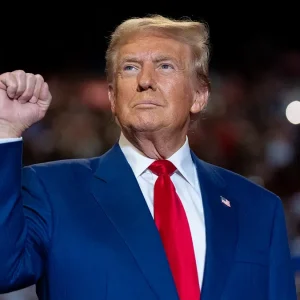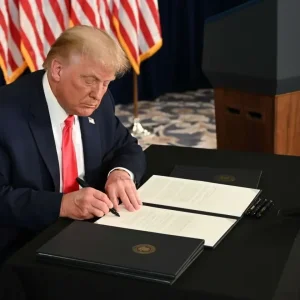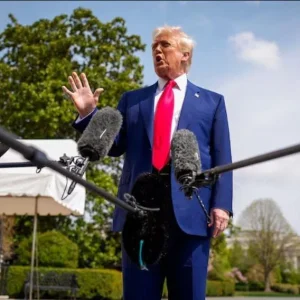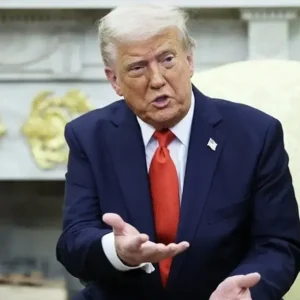Dan Bongino has never been a man to bite his tongue. A former Secret Service agent, NYPD officer, and now a firebrand conservative commentator, Bongino has built a loyal following by saying what many on the political right are thinking but are too afraid to say aloud. His latest suggestion—that he would support pursuing criminal prosecutions against politicians he believes are corrupt—has ignited a political firestorm. It has also sparked a question that forces Americans to confront uncomfortable truths about justice, power, and partisanship: Would you support Dan Bongino if he took on the political elite?
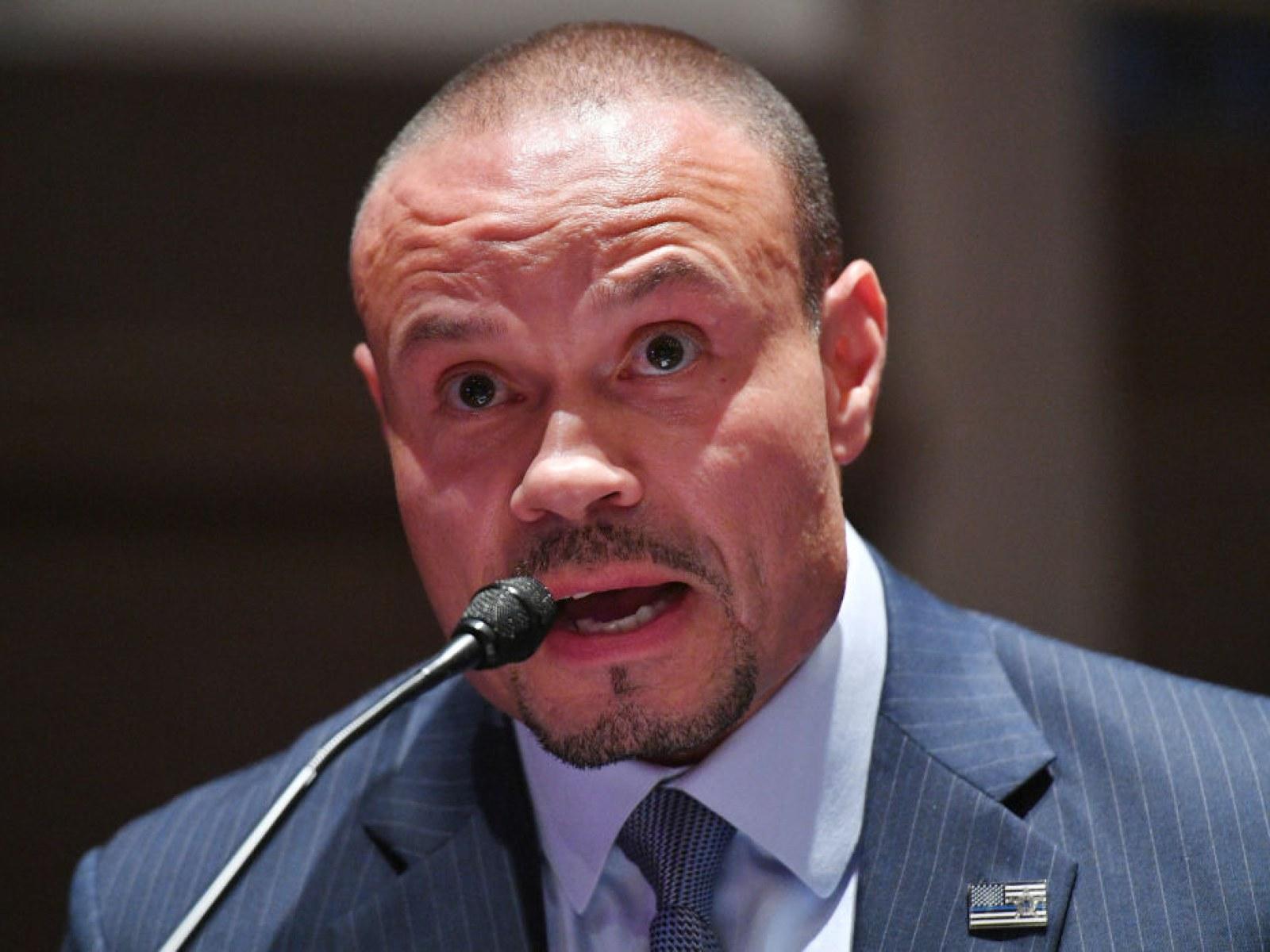
The idea, on its surface, resonates with a growing segment of the American public who are fed up with what they see as a two-tiered justice system—one that comes down hard on average citizens while allowing the powerful and politically connected to walk free. For them, Bongino represents a long-overdue reckoning. He’s not a politician; he’s a former cop and federal agent with a deep distrust of entrenched political power. And now, he’s threatening to go after those in Washington he believes have abused their authority.
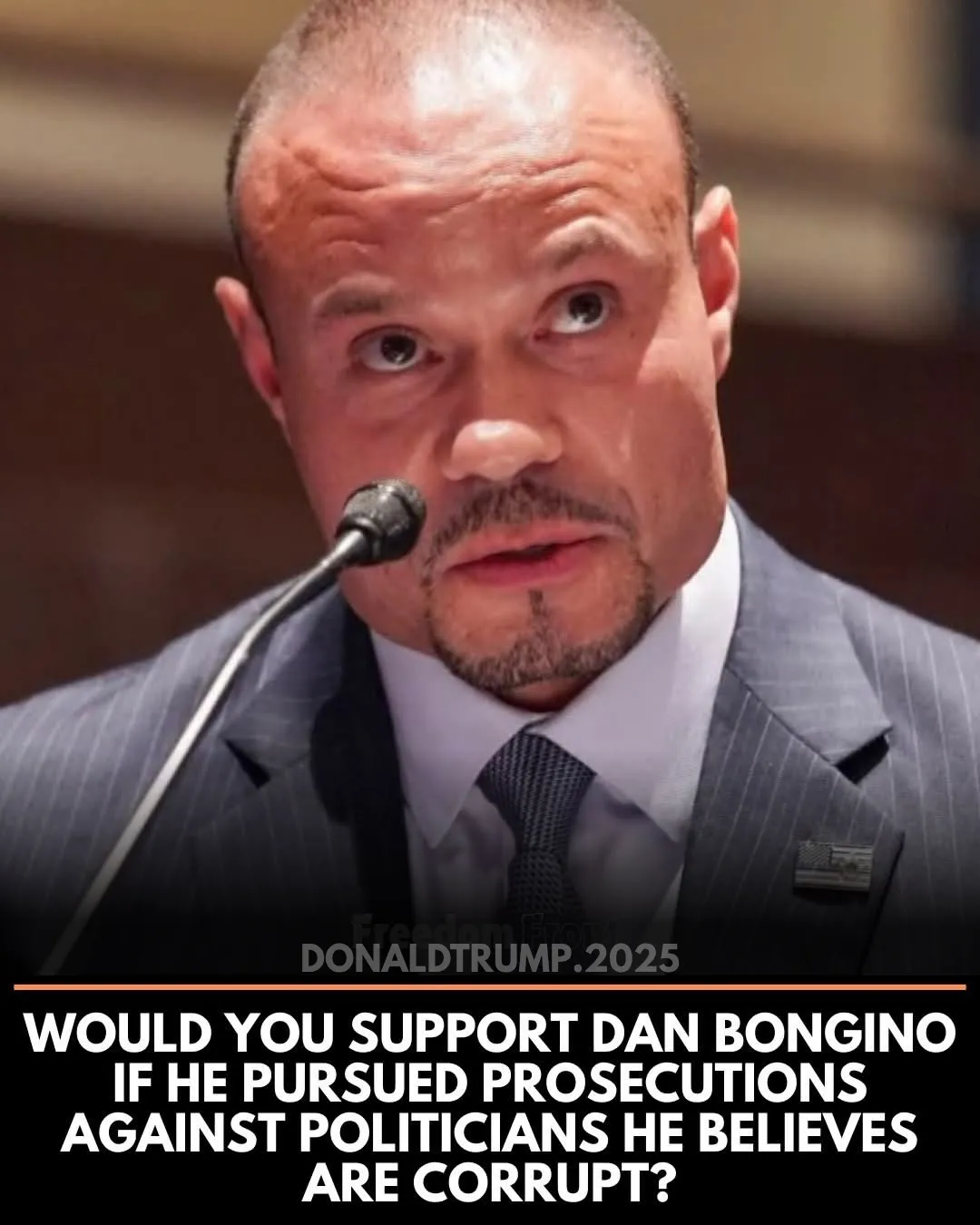
But would it be justice—or just vengeance dressed in legal clothing?
To his supporters, Bongino is the voice of accountability. They point to endless examples of political scandals that seemed to go nowhere: classified documents handled improperly, suspicious foreign business dealings, pay-to-play schemes, misuse of government funds, and a revolving door between public office and private gain. Whether it’s on the left or right, Americans have watched high-profile politicians skate past legal consequences time and again. In this climate, Bongino’s call for prosecution doesn’t sound extreme—it sounds necessary.
In his view, too many in Washington have become immune to the rules they impose on the rest of the country. He believes that if justice is truly blind, then it must be applied equally—whether the subject is a former president, a sitting senator, or a cabinet official. And he doesn’t seem to care which party they belong to. Corruption is corruption, he says, and it’s time someone had the courage to hold these people accountable.
Critics, however, see danger in Bongino’s rhetoric. They argue that empowering a political commentator—no matter how principled he may appear—with prosecutorial ambitions is a step toward authoritarianism. After all, who gets to decide what constitutes corruption? Is it evidence-based, or does it come down to political disagreements and personal vendettas? They worry that if someone like Bongino were to lead a wave of politically motivated prosecutions, it would set a chilling precedent—one where elections no longer settle debates, and where legal power becomes a tool of retribution.
Some fear that Bongino’s growing popularity, fueled by millions of listeners, viewers, and followers, is less about justice and more about raw power. They argue that targeting political opponents under the guise of anti-corruption could turn America into the kind of country it has long criticized—where law enforcement is weaponized against dissent, and political trials become a form of theater for public revenge. These critics don’t necessarily defend corrupt politicians, but they believe there’s a difference between the justice system doing its job and a political figure using that system to settle ideological scores.
But here’s the truth: trust in American institutions is at a historic low. From the Department of Justice to Congress itself, public confidence has eroded over years of scandals, stonewalling, and inaction. Many Americans no longer believe the system will clean itself up. In this climate, Bongino’s message—however aggressive—feels like a breath of fresh air to some. They don’t just support the idea of prosecuting corrupt politicians—they demand it.
Still, the danger lies not in the desire for justice, but in how that justice is pursued. The United States has long prided itself on due process, the presumption of innocence, and the careful separation between politics and law. If Bongino were to transition from commentator to crusader, the lines between those roles could blur dangerously fast. Would investigations be handled impartially? Would evidence be weighed without bias? Or would guilt be presumed the moment someone disagrees with his worldview?
And yet, maybe the more unsettling question is: if not Bongino, then who? If Americans don’t trust the Department of Justice to investigate corruption, and they don’t trust Congress to hold its own accountable, then perhaps they are looking for someone—anyone—with the backbone to take action. Bongino, with his law enforcement background and hardline attitude, fits the mold of a man who could step into that role. Whether that’s a step toward accountability or authoritarianism depends on your perspective—and your politics.
In the end, the question of whether you would support Dan Bongino in prosecuting politicians he believes are corrupt forces a deeper reflection on what justice should look like in a deeply divided America. Is it about punishing those who abuse power, or protecting the process from being politicized? Can we have both? Or are we now so tribal that even the pursuit of justice is seen through a partisan lens?
One thing is certain: Bongino isn’t going away, and neither is the demand for accountability. Whether his brand of justice is the answer or a warning is a decision the American people will have to make—sooner than they think.

